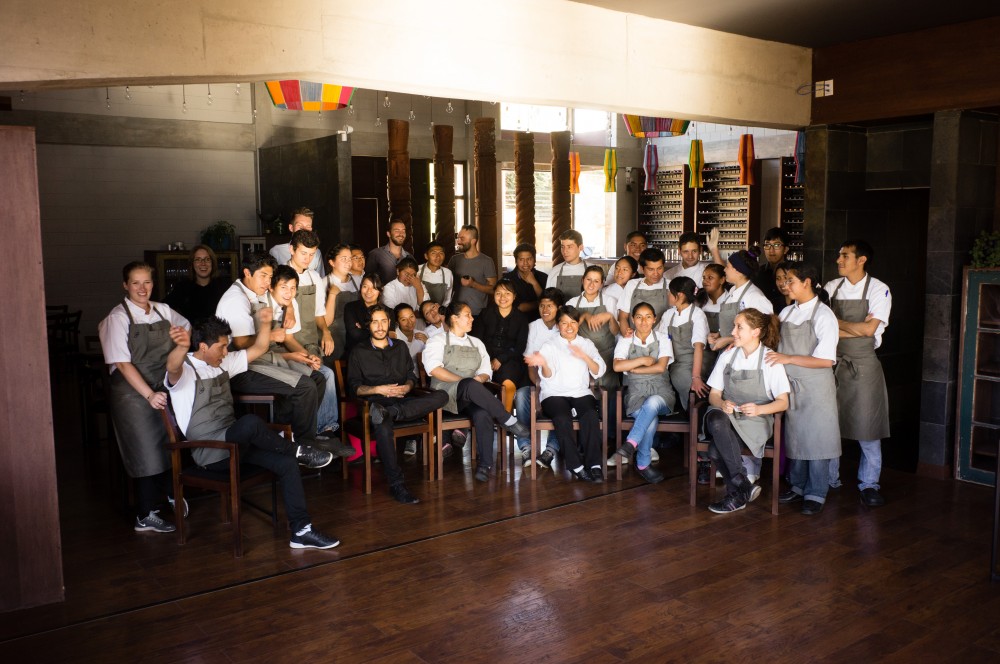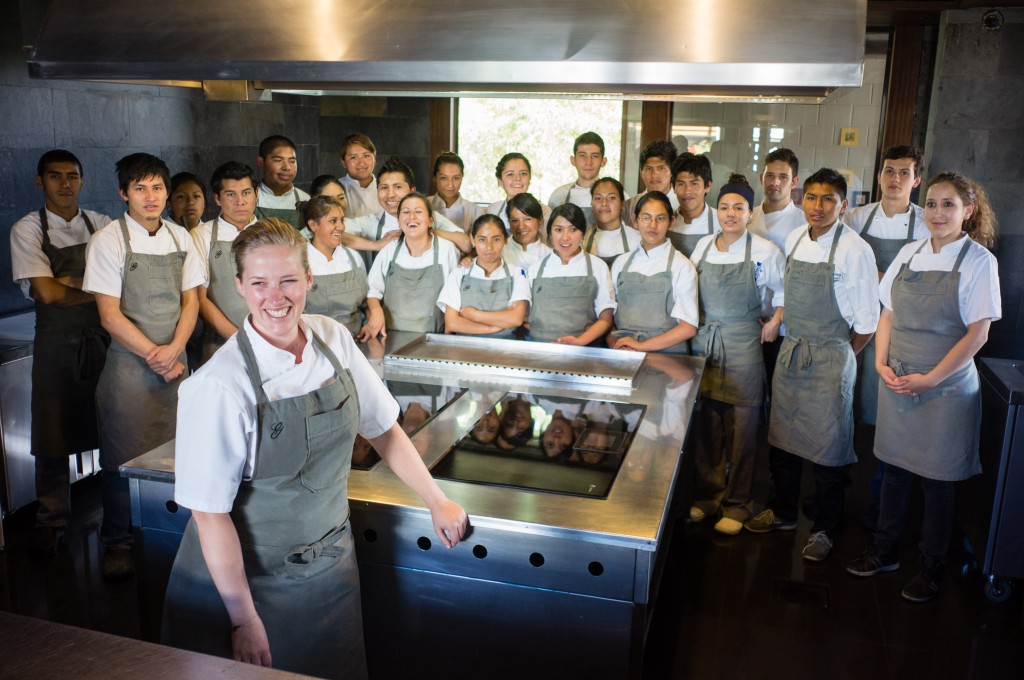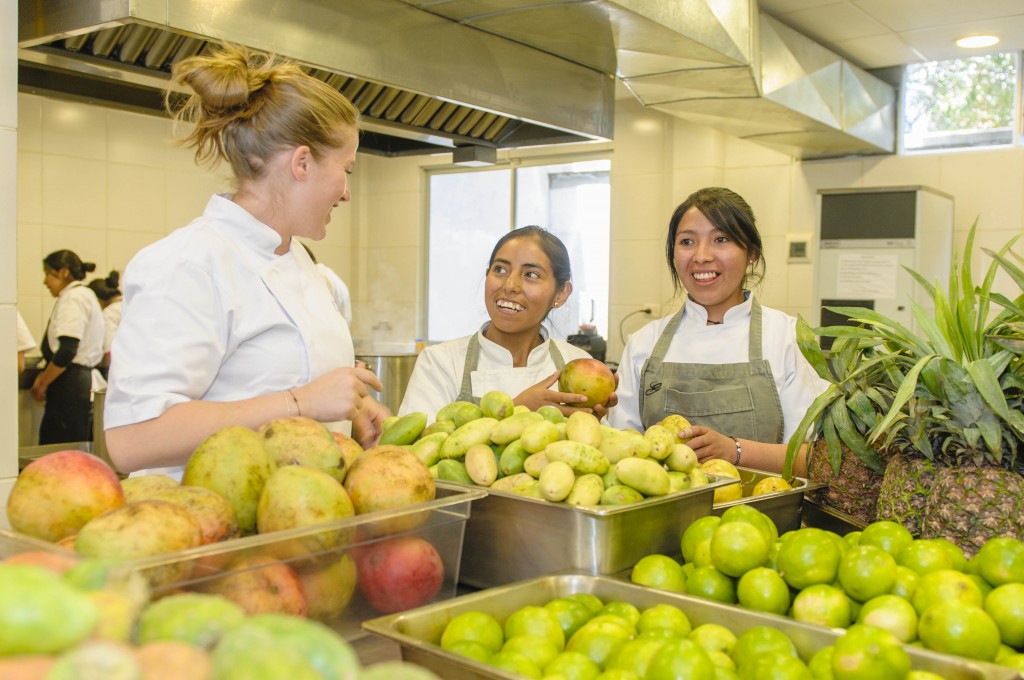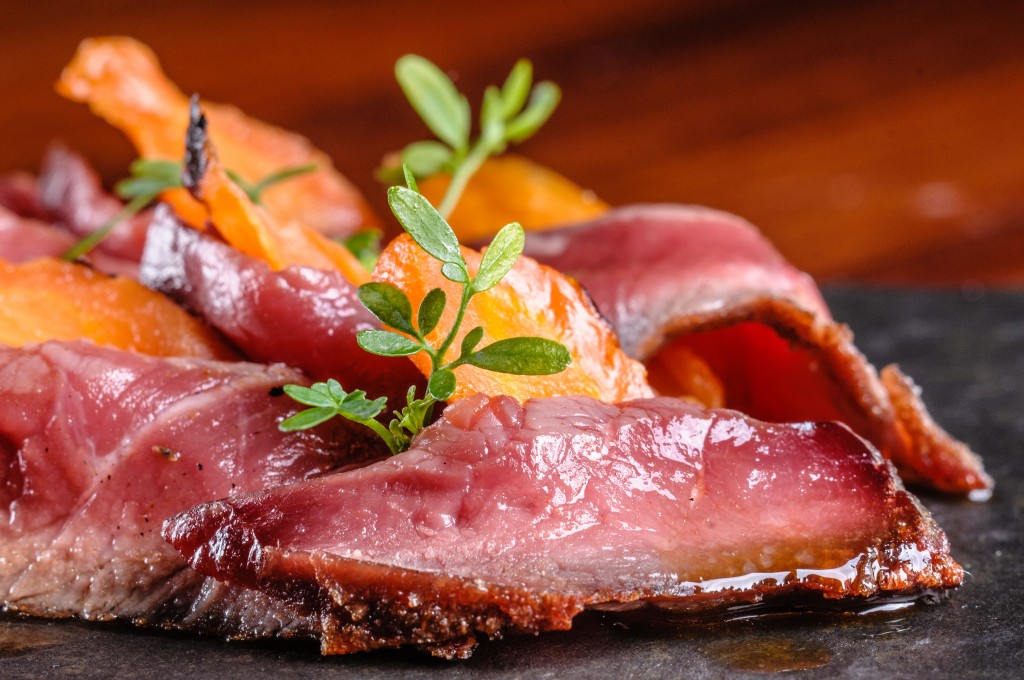“They are so bright…so many colors…so much…so different…diverse” Elizabeth Abel of the cutting-edge restaurant Gustu, struggles for the right words as she answers my question about Amazon products, her hesitancy reflecting the flood of images that came to mind as soon as I mentioned the word “Amazon.” But her point is clear: it is a vast multicolor world of natural wealth. “Traditional uses…” she adds, “are part of the magic.” She then goes on to describe traditional gastronomic wonders of the forest: Underground cooking as a pressure cooker oven, leaves as the best aluminum foil to broil fish, both exuding mysterious flavors unmatchable by any other technology.
Elizabeth is a vital part of Gustu’s team, sourcing ingredients for what was recently named one of the 50 best restaurants in Latin America – an exceptional accolade for a restaurant located at 3.650 meters in Bolivia’s capital, La Paz.
Since its founding in 2012 Gustu is first and foremost a culinary school, training Bolivian youth as a pathway to economic opportunity, and to cultural and culinary revival. Gustu is the first and most important project of “Melting Pot Bolivia,” an organization focused on the social and sustainable development of a gastronomic Bolivian identity that can lead to improved livelihoods through cultural pride.
Yet Gustu’s uniqueness also stems from the relationship between the restaurant and the origins of its ingredients –Kamilla Seidler and Michelangelo Cestari, (head chef and general manager respectively) at Gustu, emphasize the link between producers and plate, much like their Peruvian colleague Gaston Acurio. Gustu applies the “0 kilometer” philosophy: working exclusively with ingredients planted, raised, grown and processed entirely in Bolivia. And rather than a limitation, this opens up a world of opportunities – both for improving living conditions for farmers in this landlocked South American nation, but also for culinary innovation.
Gustu’s La Paz address is in the heart of Latin America, straddling traditions and ingredients from the Amazon rainforest to the high Andes. The country’s biological and cultural diversity gives Gustu an extraordinary palette to draw from, including ingredients like llama meat, gator tail, racacha, tarwi and cañahua in dishes like “Raw Cayman with Grilled Watermelon and Amazonian Cucumber Pickle” or “Llama with Citrus Yogurt, Roasted Onions and Eggplant.” Elizabeth is responsible for knowing the story behind each of these products, understanding the people behind its production, harvest or hunting, and working to create a relationship that benefits all those involved in the path from source to table.
As with every great project on the cutting edge of change, challenges abound. Kamilla and Michelangelo note that conducting “fair trade” with producers is not as easy as asking for the fair price and paying it, even when there is goodwill on all sides. Producers themselves often have a hard time putting a proper price on the quality, clean, local produce they grow. Used to selling thousands of sacks of potato for pennies, growers have a hard time truly valuing their effort and making a dignified profit of their work. Identifying and ensuring consistent delivery of some of these remarkable and novel products is also a challenge. Elizabeth shares with me and describes the heroic and serendipitous path to getting Amazon fish from hundreds of kilometers away to the restaurant without an established cold chain, precarious roads and fishermen more accustomed to local barter and sale than dealing with a restaurant in the far-away capital.
Modest despite their successes, Kamilla and Michelangelo appear humbled yet revitalized themselves by their Bolivian experience. The first time we met, Cestari, (originally from Venezuela and trained in Europe) pointed to the apparent contrast with Bolivia. “I’ve learnt that we really have nothing. While they seem at first not to have it all, they do have it… they have it all,” he reflects after his two years in Bolivia.
Gustu graduated its first class of 11 cooks, bartenders, bakers and service staff last year, Melting Pot Bolivia has launched more projects under the same premise of using food to change lives, take care of ecosystems and revive a nation through its own hands, its soils, and its biodiversity. Reminding all that origins matter, people matter, the path our food follows matters to our bodies and our health, to our families, to our communities, to our world.

By Canopy Bridge
*All images by Luis Fernández, Gustu.




